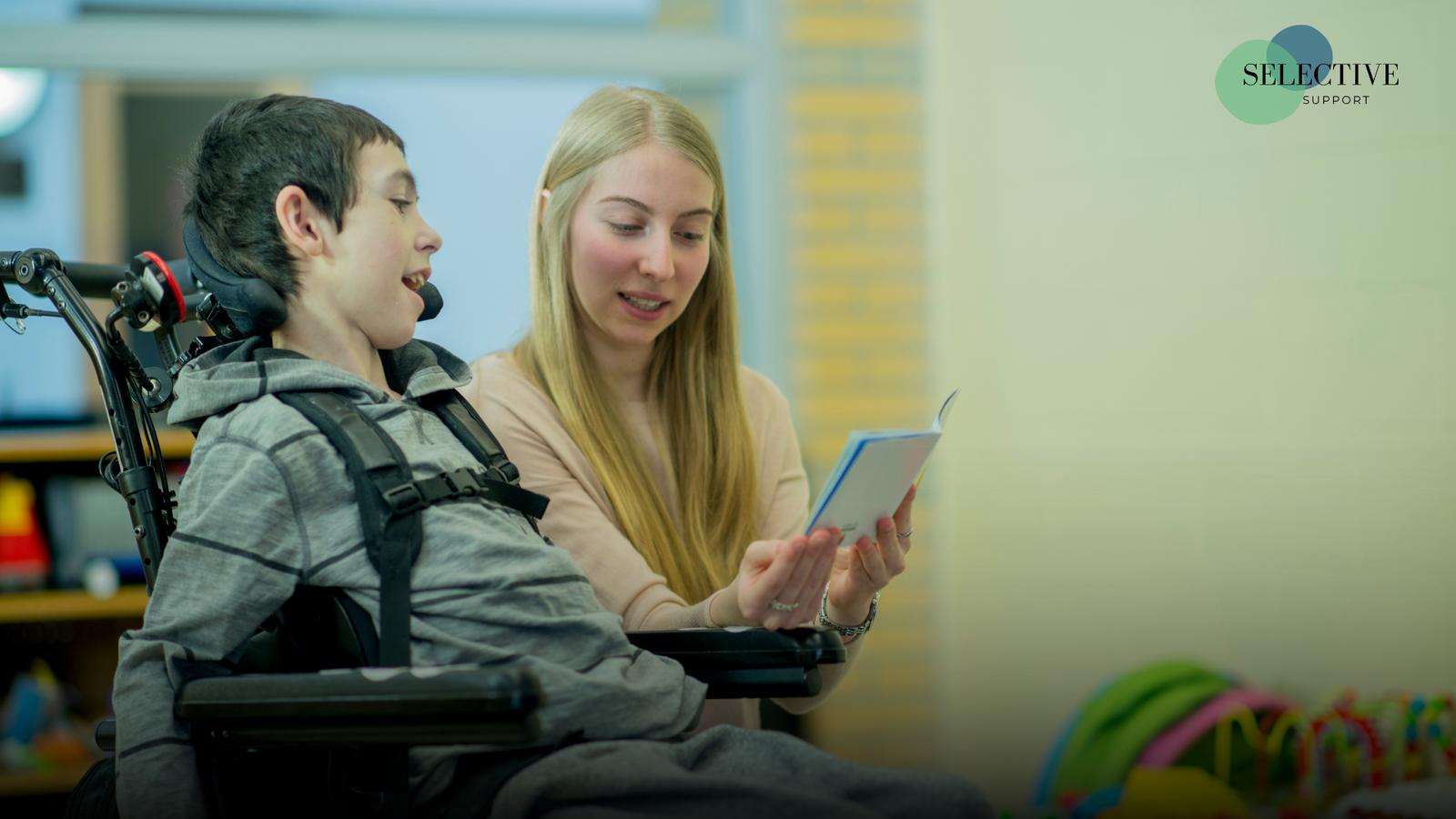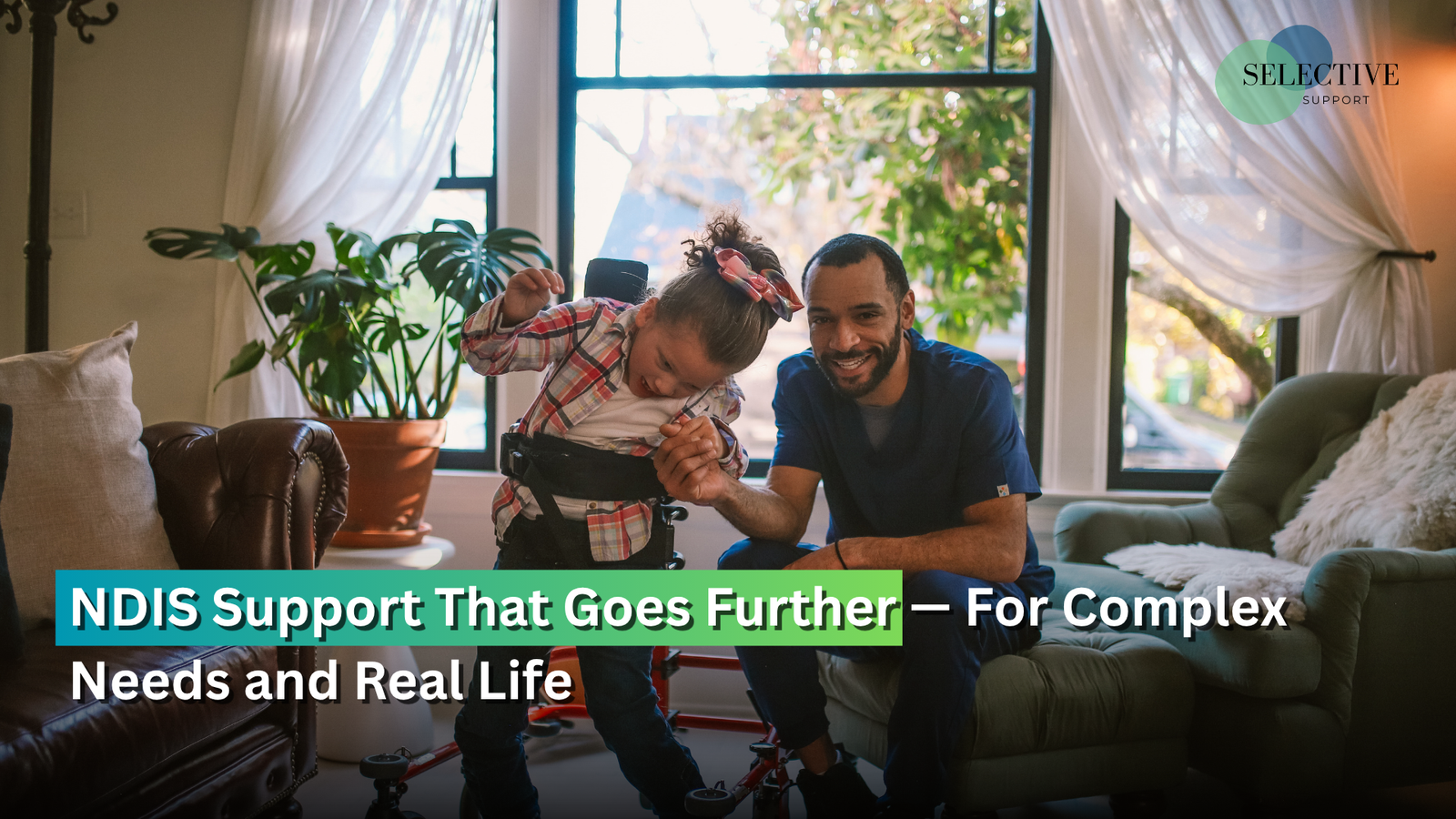NDIS Specialist Support Coordination: 5 Ways a Coordinator Helps You
Feeling like your NDIS plan is more confusing than helpful? You’re not imagining it — many participants with complex needs struggle to make the system work for them. That’s where specialist support coordination comes in. Designed for people who need more hands-on, tailored support, this service helps you stay on track, reduce stress, and access the right providers more easily.
Whether you’re juggling mental health needs, multiple services, or just unsure what step to take next, a specialist support coordinator can guide you with compassion and clarity. If you’ve ever felt stuck or unsupported, keep reading. This post breaks down five practical ways NDIS specialist support coordination can help you feel more confident and in control.
What Is Specialist Support Coordination?
Understanding NDIS Specialist Support Coordination
If you have more complex needs or face big barriers to getting the right support, NDIS specialist support coordination may be included in your plan. But what exactly does that mean?
Put simply, specialist support coordination is a higher level of support than general coordination. It’s designed for people who need more intensive help to manage challenges in their daily life, whether that’s juggling multiple services, navigating housing issues, dealing with mental health concerns, or working with several providers at once.
Unlike general support coordinators who guide you through the basics of your NDIS plan, a specialist support coordinator steps in when things are more complex. They’re highly skilled in crisis planning, building service pathways, and helping you stabilise your situation. Most importantly, they work with you, not just for you, listening, advocating, and helping you feel in control.
“Specialist support coordination isn’t just about solving problems — it’s about building stability, trust, and long-term solutions tailored to each participant’s unique journey.”
Think of it like this:
- General support coordination helps you connect the dots.
- Specialist support coordination helps you rebuild the whole map when things feel messy, overwhelming, or uncertain.
When Do You Qualify for a Specialist Support Coordinator?
The NDIS typically includes specialist support coordination for participants who:
- Have multiple or high-risk support needs
- Face significant barriers to accessing services (e.g. mental health, housing instability)
- Are in crisis or require urgent, coordinated responses
If you feel like you’re constantly chasing providers, repeating your story, or struggling to make progress with your plan — this level of support could be right for you.
A good NDIS specialist support coordinator becomes your partner in managing life’s challenges. They help make the NDIS feel less like a maze and more like a path forward — one that suits your goals, needs, and pace.

5 Ways Specialist Support Coordination Helps You Thrive
A specialist support coordinator doesn’t just help you “tick boxes” — they walk beside you through the complex parts of life and planning, making sure you feel supported, confident, and in control. Here’s how:
1. You Get Clear, Personalised Support
Your needs are unique — and so is the way your coordinator supports you. From day one, they take the time to really understand what matters to you. They listen, explain things in simple language (no NDIS jargon), and help you set realistic goals. Whether you’re needing support with routines, or balancing services for a family member, a good coordinator makes things feel clearer and calmer.
2. You Save Time and Reduce Stress
Managing multiple providers, booking appointments, following up reports — it’s a lot. Your specialist support coordinator does the heavy lifting: organising, coordinating, and communicating across services so you don’t have to. For someone who often feels like they’re chasing responses, this can be a huge relief.
3. You Stay on Track with Your NDIS Plan
Using your plan the right way can feel confusing. Your NDIS specialist support coordinator keeps you on track, helping you understand budgets, follow through with your goals, and avoid underspending or missing out on supports.
Want to make the most of your NDIS plan — not just manage it? If you’re ready to take action but unsure what’s actually included in your funding, understanding what the NDIS covers is the perfect next step.
4. You Access the Right Services Faster
Delays and long waitlists are common. A specialist coordinator advocates for you and helps connect you quickly with the right services, from therapy and allied health to community programs.
5. You Build Independence and Confidence
Over time, your coordinator helps you build life skills, routines, and resilience. For participant, that might mean joining an art group. For others, it could mean managing appointments with less help.
What Makes a Good Specialist Support Coordinator?
When it comes to specialist support coordination, not all coordinators are created equal. For a service that plays such a vital role in your NDIS journey, it’s important to know what makes a truly great coordinator, someone who not only understands the system but also genuinely supports you.
Compassion, Clarity, and Consistency
At the heart of every great specialist support coordinator is compassion. You want someone who listens without judgment, takes the time to understand your life, and responds with empathy and respect. Clarity is just as important — your coordinator should explain things in a way that makes sense and helps you feel confident in your choices. And consistency? That’s key. Whether it’s returning your calls or following up with providers, reliability builds trust.
Look for a coordinator who:
- Communicates clearly and regularly
- Responds quickly and follows through
- Respects your goals and voice
- Understands complex needs and acts with care

How Selective Support Can Help
At Selective Support, we believe the best support starts with personal connection. Our team is small enough to know you by name, and experienced enough to handle complex NDIS situations with confidence. Whether you’re needing mental health and life skills support, or juggling family responsibilities and NDIS admin — we’re here to simplify, support, and empower.
We don’t just fill out forms. We partner with you — to make life a little easier, and a lot more manageable.
Want support that actually supports you? Discover how a compassionate, consistent coordinator can make all the difference.
Conclusion: Your NDIS Plan, Your Life — With the Right Support
Navigating the NDIS can be tough, especially when life feels full already. But with the right support, things can become much clearer. Specialist support coordination is more than just organising services — it’s about building a partnership that helps you feel confident, connected, and in control.
Whether you’re facing complex challenges, juggling multiple supports, or just need someone in your corner, the right coordinator can make all the difference. From saving you time and stress to helping you achieve your goals, you don’t have to do it all alone. If you or someone you care for needs a trusted guide through the NDIS, our support coordinators at Selective Support are here for you. Let’s talk — and build the support you truly deserve.
Frequently Asked Questions About Specialist Support Coordination
Q1: Who can provide Specialist Support Coordination?
Specialist Support Coordination must be delivered by a registered NDIS provider with qualified staff who have expertise in working with participants with complex needs. These professionals often have backgrounds in social work, mental health, or allied health, and are trained in managing high-risk situations, coordinating intensive supports, and crisis planning.
Q2: What is Level 3 Support Coordination in the NDIS?
Level 3 support coordination refers to Specialist Support Coordination, the highest tier of NDIS support coordination. It’s designed for participants who face significant barriers to accessing services, have multiple or high-risk support needs, or are in situations that require immediate, complex intervention. This level of support is more intensive and hands-on than Level 2 (Support Coordination), and is usually included in plans where the participant needs expert help to stabilise, manage crises, or navigate multiple service systems.
Q3: What does a Specialist Support Coordinator do?
A Specialist Support Coordinator helps you manage complex or high-risk aspects of your NDIS journey. They go beyond basic plan implementation by:
- Developing crisis plans and strategies
- Coordinating services across multiple providers
- Advocating for your rights and access to supports
- Helping stabilise challenging life situations
- Supporting your mental health and independence
They work closely with you to build a clear, achievable plan that helps you feel supported, not overwhelmed.


